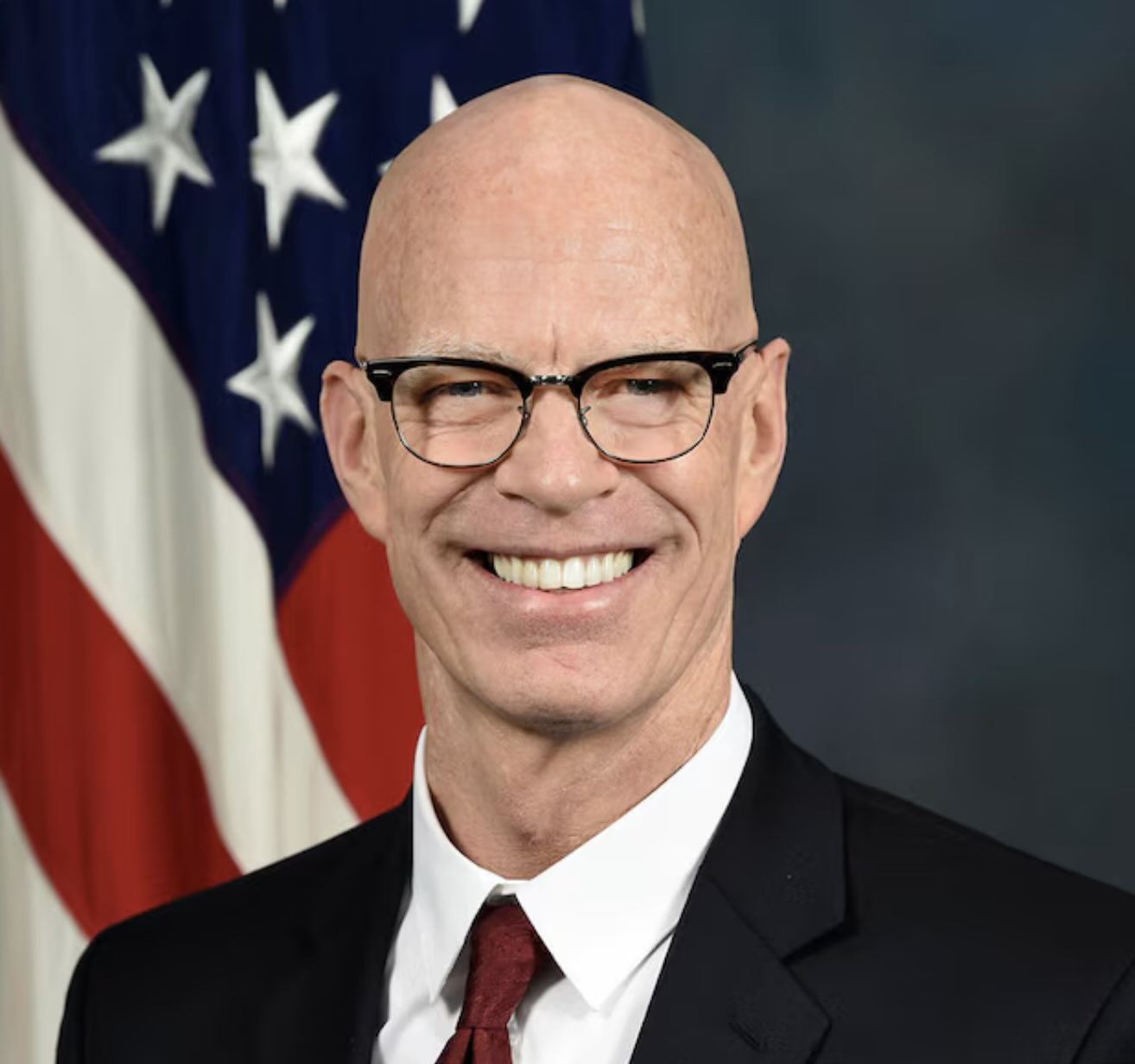A coalition of scientists and former intelligence officials is urging White House support for an initiative to advance U.S. research in ‘edge science’ and controversial fields like quantum computing and consciousness studies, The Debrief has learned.
As American advancements in technology and science rapidly evolve amid global competition, officials from the Executive Office of the President at the White House in Washington, D.C. recently met with a group of scientists and former intelligence officials advocating for a groundbreaking new initiative, Research and Innovation at the Scientific Edge (RISE), which aims to push the boundaries of scientific exploration.
RISE seeks support for projects dedicated to unconventional or cutting-edge research areas, such as quantum computing, consciousness studies, remote viewing, micro-psychokinesis (PK), time-agnostic cryptography, evidence-based tools informed by Indigenous knowledge, and potential applications for the study of unidentified anomalous phenomena (UAP). RISE advocates argue that pursuing these fields is essential to maintain America’s competitive edge against rapidly advancing nations like China.
The initiative’s proponents further argue that the U.S. can overcome obstacles and stigma surrounding unconventional research with Chief Executive support, allowing the U.S. to develop game-changing advantages related to everything from national security to human resilience.
The organization consists of heavy hitters from not only the science community, but former internal government officials with a diversity of agency insights, including Neuroscientist Julia Mossbridge, Ph.D.; Chitra Sivanandam from the National Security Institute; Daniel “Rags” Rasgdale, Ph.D., Former Assistant Director for Cyber in the Office of the Director of Defense Research and Engineering (Research & Technology); and Carmen Medina, a retired Senior Federal Executive with more than three decades in the Intelligence Community, including work with the CIA.
“During my more than 30 years in national security, too many times we were surprised by things that others claimed could never happen,” Medina said in a recent statement announcing the initiative. “The best way to prevent that in the future in the science and technology domains is to have a dedicated program to scan the horizon for new discoveries.”
Discussions about foreign adversaries gaining a technological edge have recently intensified, with reports suggesting that China is investing significantly in fields like quantum computing, photonics, and brain-machine interfaces.
In July, the Chinese government announced an ambitious goal to set a new world standard for brain-machine interfaces. Parallel to these efforts, China has already invested $15.3 billion in quantum technology compared to the U.S.’s $3.7 billion, an investment gap that highlights the urgent need for the U.S. to prioritize advanced research.
Along similar lines, a February 2022 RAND Corporation report comparing the U.S. and Chinese industrial bases with relation to advancements in quantum technology emphasized that Chinese efforts are primarily concentrated in government-funded laboratories, some of which have made rapid progress.
Given such concerning advancements by adversary nations, a related area of focus for RISE also involves problems associated with over-classification within the U.S. intelligence community, which even U.S. Director of National Intelligence Avril Haines has said potentially “undermines critical democratic objectives” by limiting access to information that could help advance U.S. capabilities.
“Over-classification is a considerable burden,” said neuroscientist Julia Mossbridge, Ph.D., in an email to The Debrief. “Even just bureaucratically, it weighs down government functioning. But beyond that, it has a dampening effect on science and technology ecosystems, any form of exploration, and democracy itself.”
Mossbridge told The Debrief that problems like over-classification are paralleled by separate issues that include stigmas that have long hampered serious studies into unconventional research topics.


“Right now, the edge science and technology ecosystem has to be very careful since we’ve experienced all sorts of shaming, blaming, discounting, and dismantling of genuine scientific and technological advancements in administrations on both sides of the aisle,” Mossbridge says. “This multi-decade-long problem needs to end so researchers can get back to discovering again.”
Echoing Mossbridge’s sentiments, Daniel Ragsdale, a former federal official and recipient of the Secretary of Defense Medal for Outstanding Public Service, said “the time has come to give edge science and technology the permission, priority, and significance it deserves.”
“We must empower our best minds to rise to this challenge—expanding the boundaries of knowledge for the benefit of the public and national security,” Ragsdale told The Debrief.
A key challenge RISE faces involves the attitudes that have long prevailed over unconventional research within the scientific and governmental communities. Remote viewing, for example, is a highly stigmatized and controversial topic that the U.S. intelligence community has seriously explored in the past.
“A limited number of people in government almost certainly understand this topic and its potential,” said Dean Radin, Ph.D., Chief Scientist at the Institute of Noetic Science (IONS) and Associated Distinguished Professor of Integral and Transpersonal Psychology at the California Institute of Integral Studies (CIIS), in an email to The Debrief.
“Fewer may appreciate that the U.S. lags behind similar research and development efforts in other countries, and I believe that presents a real threat to our national security,” Radin said.
Remote viewing research was pioneered in the 1970s by Stanford Research Institute researchers Harold E. Puthoff and Russel Targ, under a program initially funded by the CIA and later supported by the Department of Defense. The program that became known as the Stargate Project aimed to determine whether extrasensory perception could enable individuals to “see” distant or unseen targets.
Though declassified and shut down in 1995 due to skepticism about its effectiveness, rumors persist that similar research continues under a different name, although this remains unconfirmed by U.S. authorities. Among those who claim to have been involved in such efforts, former U.S. Army Counterintelligence officer Luis Elizondo has said that he worked on a secret remote viewing program, although the Department of Defense has not verified these claims.
While the Department of Defense currently already has the Defense Advanced Research Projects Agency (DARPA) to explore cutting-edge technology, Mossbridge and her colleagues feel that there are other areas that warrant serious research which it and similar agencies have traditionally avoided.
“RISE was an idea I had for RAND,” Mossbridge told The Debrief. “But I heard from RAND when I presented this that it was too controversial, and RAND would need direct outreach from the White House to pursue this stuff. Then I heard the same thing going to DARPA.”
“There’s a general fear that it’s not okay to pursue edge science and tech openly, and that there has to be a culture shift from the very top,” Mossbridge said.
Radin similarly told The Debrief that in his experience, federal agencies tend to avoid having involvement with such pursuits, emphasizing that “this shyness factor has severely constrained government funding for research on these topics.”
“These agencies are understandably concerned that the public might misinterpret their work as being ‘woo-woo’ or weird,” Ragsdale told The Debrief. “Unfortunately, edge science can often be viewed this way, whereas it should be recognized as a valid, evidence-based method for uncovering knowledge when we are open-minded enough to pose research questions that are unconstrained by conventional thinking.


“If established within the Executive Office of the President (EOP), RISE could empower these agencies—and, by extension, the entire nation—to prioritize a wider range of innovative ideas and impactful solutions,” Ragsdale said.
Besides seeking government endorsement, RISE plans to collaborate with academic institutions, non-profits, businesses, and other relevant government bodies. In a press release, RISE outlined three primary objectives: advancing national well-being through transformative science and health innovations, fostering an inclusive ecosystem for groundbreaking research, and strategically investing in technology programs that address emerging priorities.
Mossbridge explained that RISE won’t conduct research directly, but will serve as a facilitator for studies undertaken by research organizations already existing within and outside the government. Housed within a small office within the Executive Office of the President—possibly within or related to the Office of Science and Technology Policy, RISE will help to facilitate inter-agency relationships, private-public partnerships, and relationships with academic, nonprofit, and also faith-based institutions focused on edge science and technology projects.
Reflecting on the past, RISE advocates have drawn lessons from the 1960s space race, emphasizing the extraordinary achievements made possible through strong Executive Office leadership. They argue that with similar high-stakes challenges today, White House support is crucial to advance American innovation and keep the nation at the forefront of global scientific and technological development.
Ultimately Mossbridge says RISE, once implemented, has the potential to significantly aid in shifting stigmas that have long impeded research in these areas, allowing the U.S. to move forward “by facilitating funding and collaborations that explicitly support edge science and technology.”
Chrissy Newton is a PR professional and founder of VOCAB Communications. She currently appears on The Discovery Channel and Max and hosts the Rebelliously Curious podcast, which can be found on The Debrief’s YouTube Channel on all audio podcast streaming platforms. Follow her on X: @ChrissyNewton and at chrissynewton.com.

